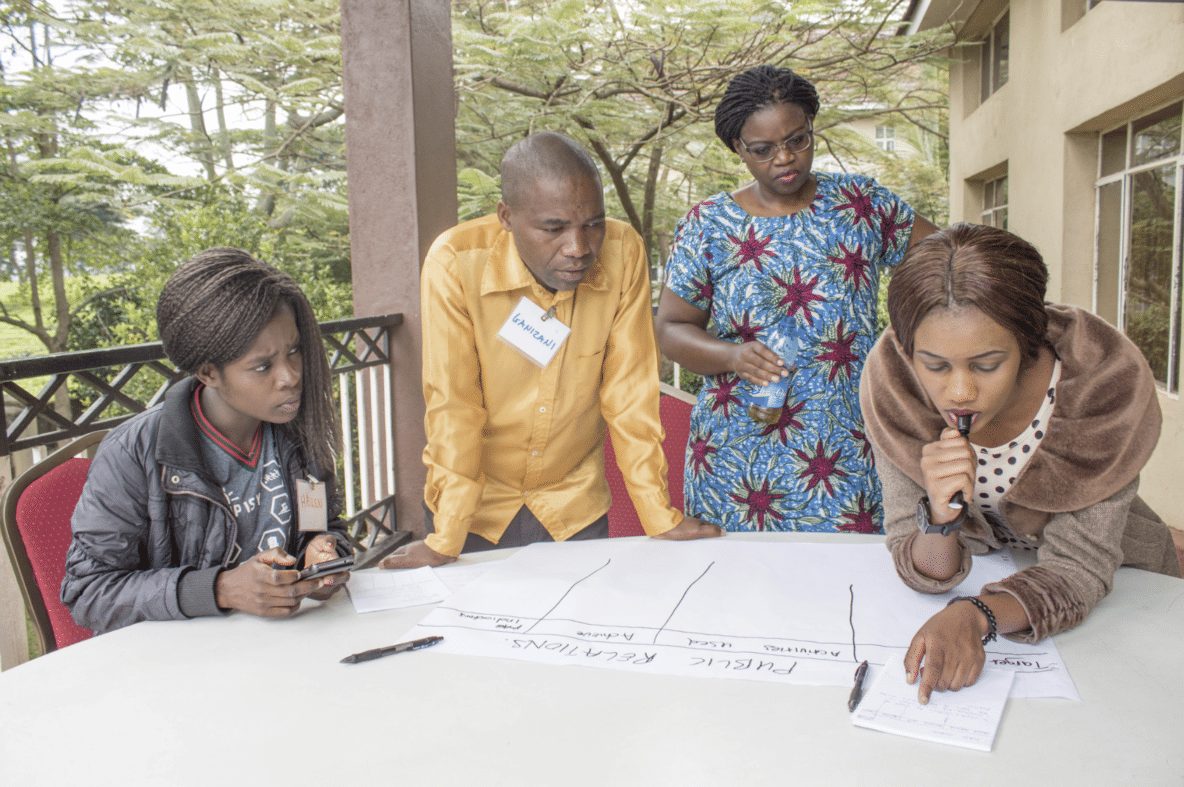In late May, Rise Up gathered a cohort of 18 civil society and community organization leaders for an intensive seven-day leadership and advocacy workshop dedicated to reducing child marriage in Thyolo District in Southern Malawi.
Brought together through the Rise Up ENGAGE (Enabling Girls to Advance Gender Equity) Initiative, the leaders dug into various topics like advocacy, leadership development, and decision-maker education. Throughout the week they discussed the driving causes of child marriage in Southern Malawi and identified possible solutions to help create a more equitable environment for girls to grow and thrive in communities across Thyolo.
During the training the cohort of leaders was able to engage directly with two local chiefs, government leaders, girl leaders from Traditional Authority Changata and Nchilemwera in Thyolo, and ENGAGE partner organizations, Girls Empowerment Network (GENET) and Youth Net and Counselling.
The value of this advocacy work was reinforced as the training overlapped with a major policy-change win in the nearby district of Phalombe. Thanks to the continued effort of girl advocates trained by GENET through ENGAGE, the Phalombe Senior Chief in Chiwalo raised the minimum marriage age from 18 to 21 in his jurisdiction.
This policy change follows the efforts of Rise Up and GENET to help girl leaders and their allies prevent child marriage and protect girls’ health and access to education. While the minimum age increase is an important victory, the implementation and reinforcement of this bylaw will require continued advocacy from Rise Up partners.
The promising group of newly-graduated leaders will work closely with previously trained Rise Up leaders throughout Thyolo and Phalombe districts to advocate for the implementation of this policy and to drive innovative solutions and girl-centered advocacy strategies to reduce child marriage in Southern Malawi.
To date, Rise Up’s ENGAGE Initiative has activated 342 girl leaders and 36 civil society organization leaders across the two districts of Southern Malawi. The transformative work of these leaders is critical in bringing greater gender equality to their communities and country.


